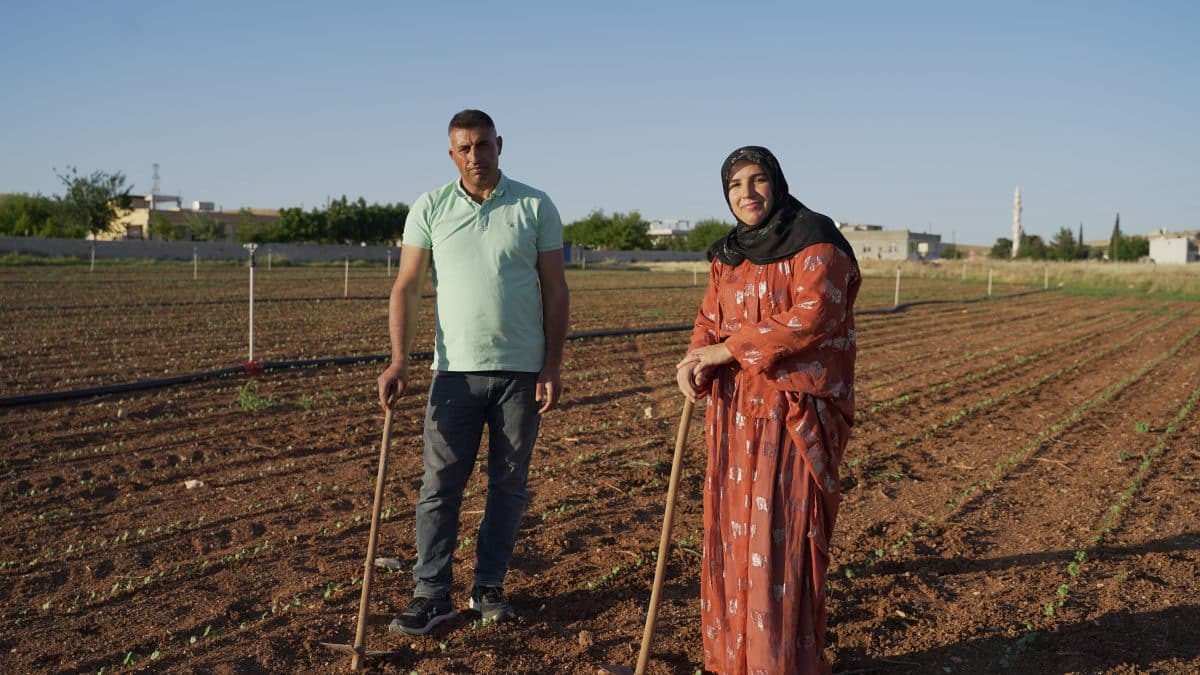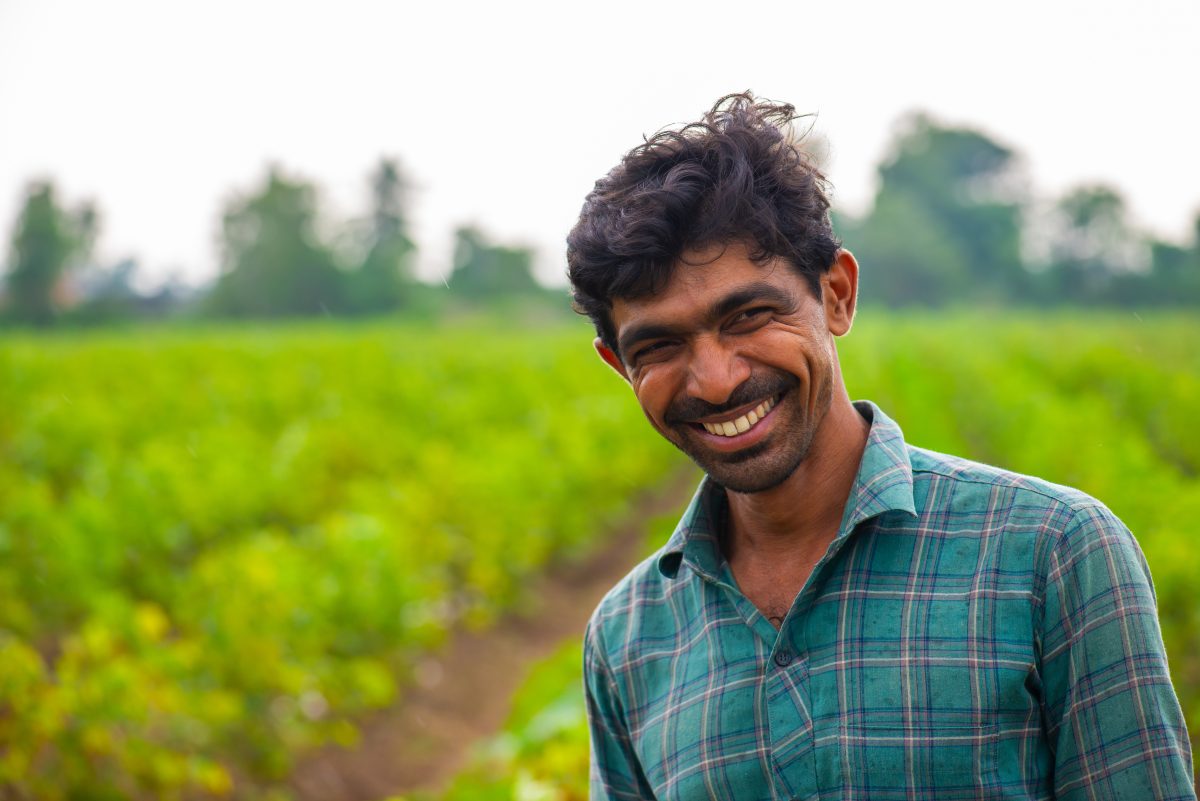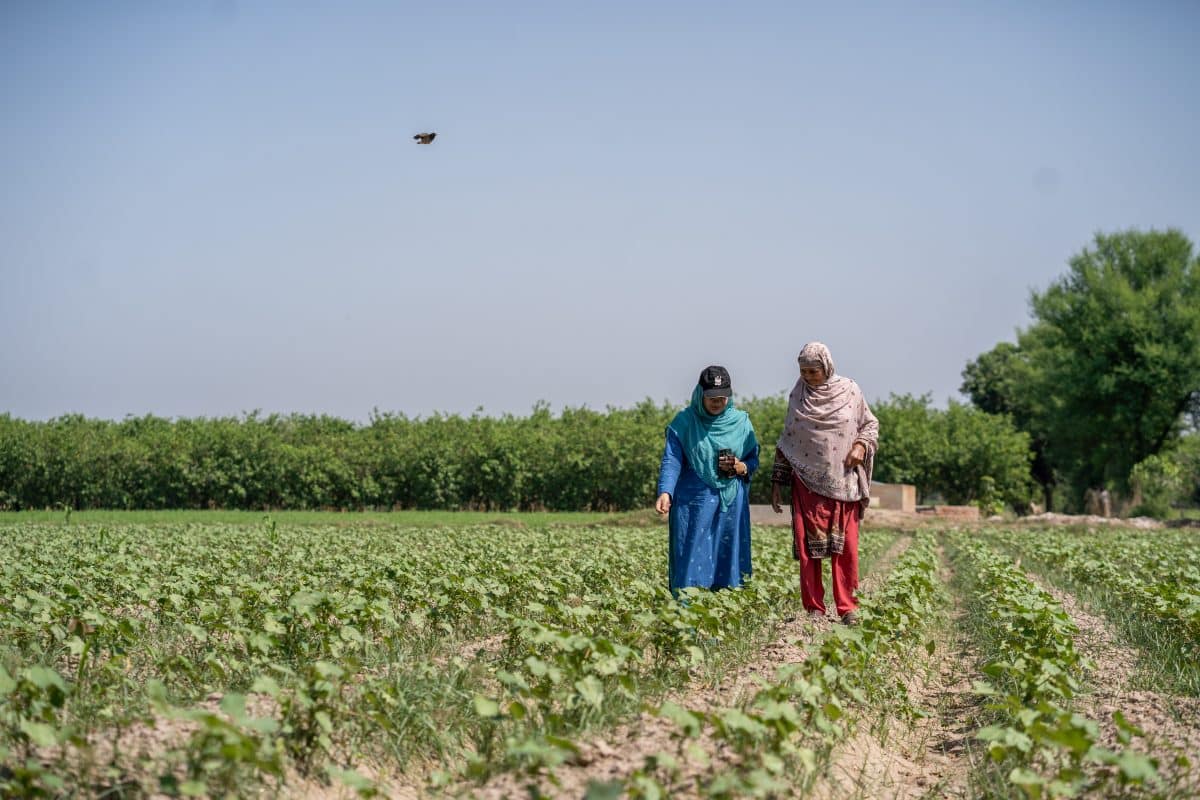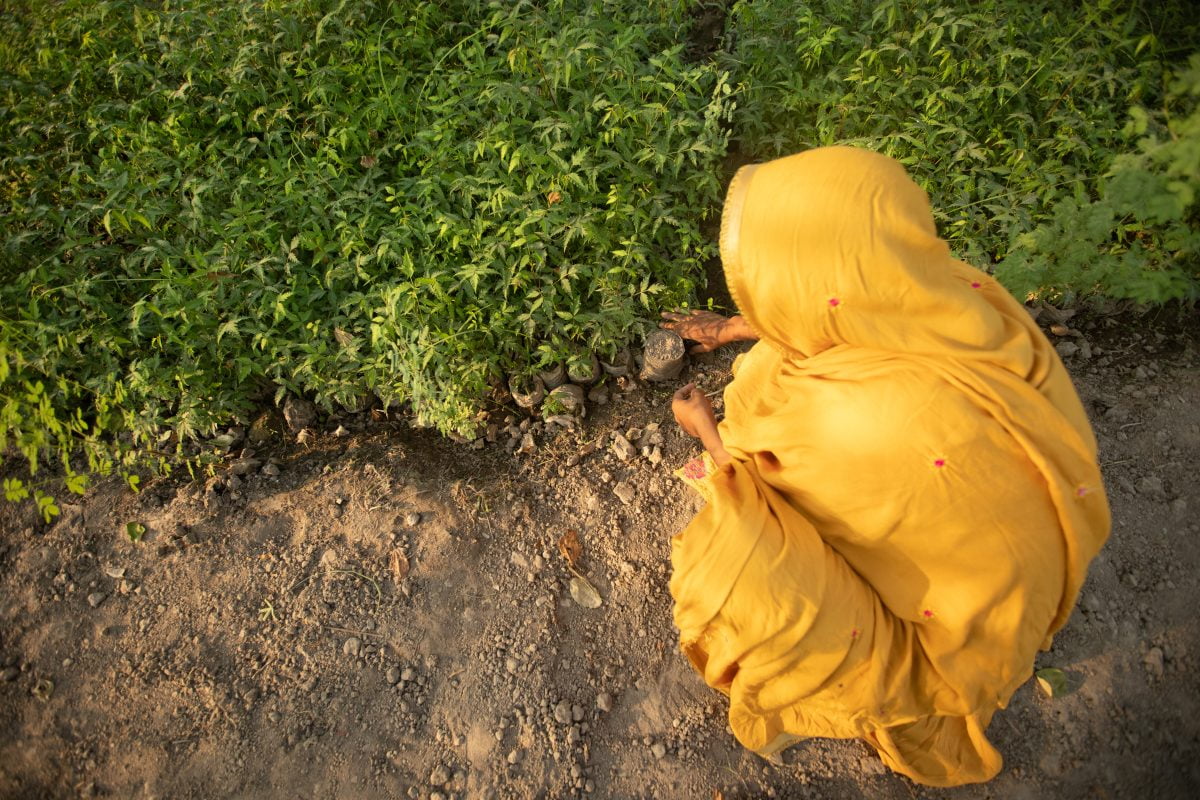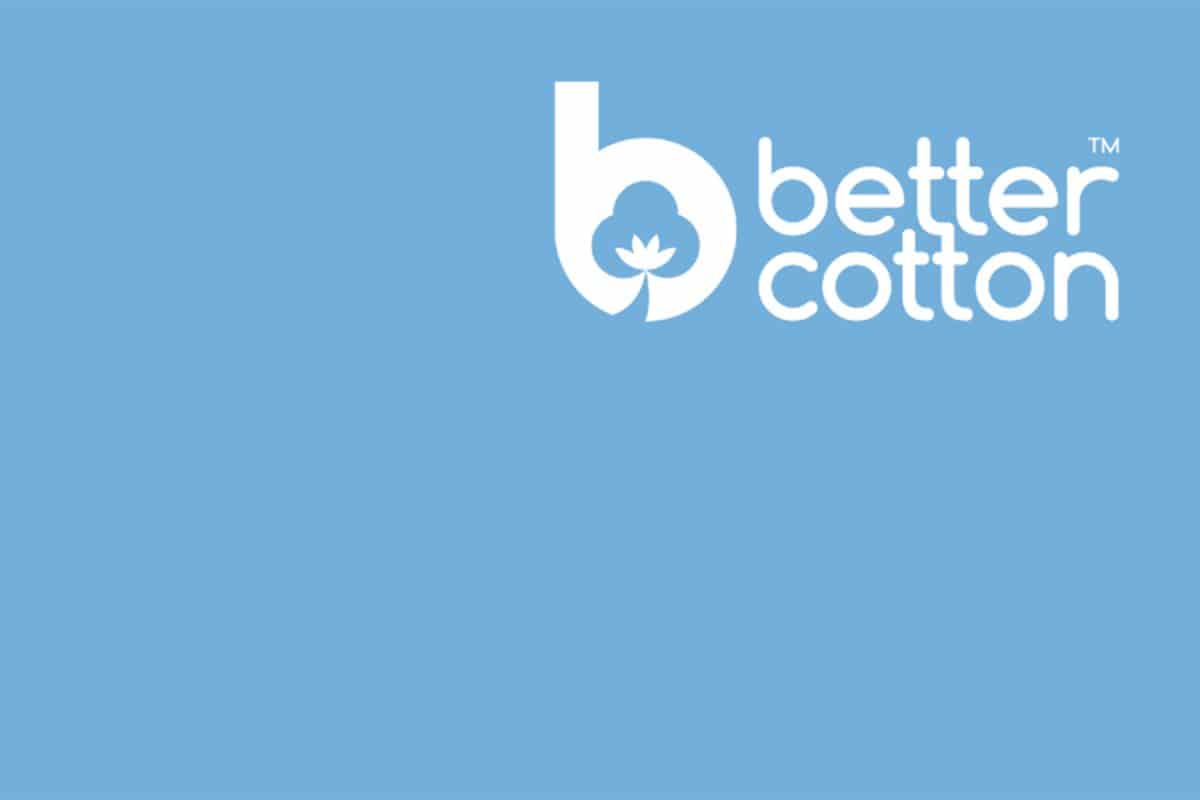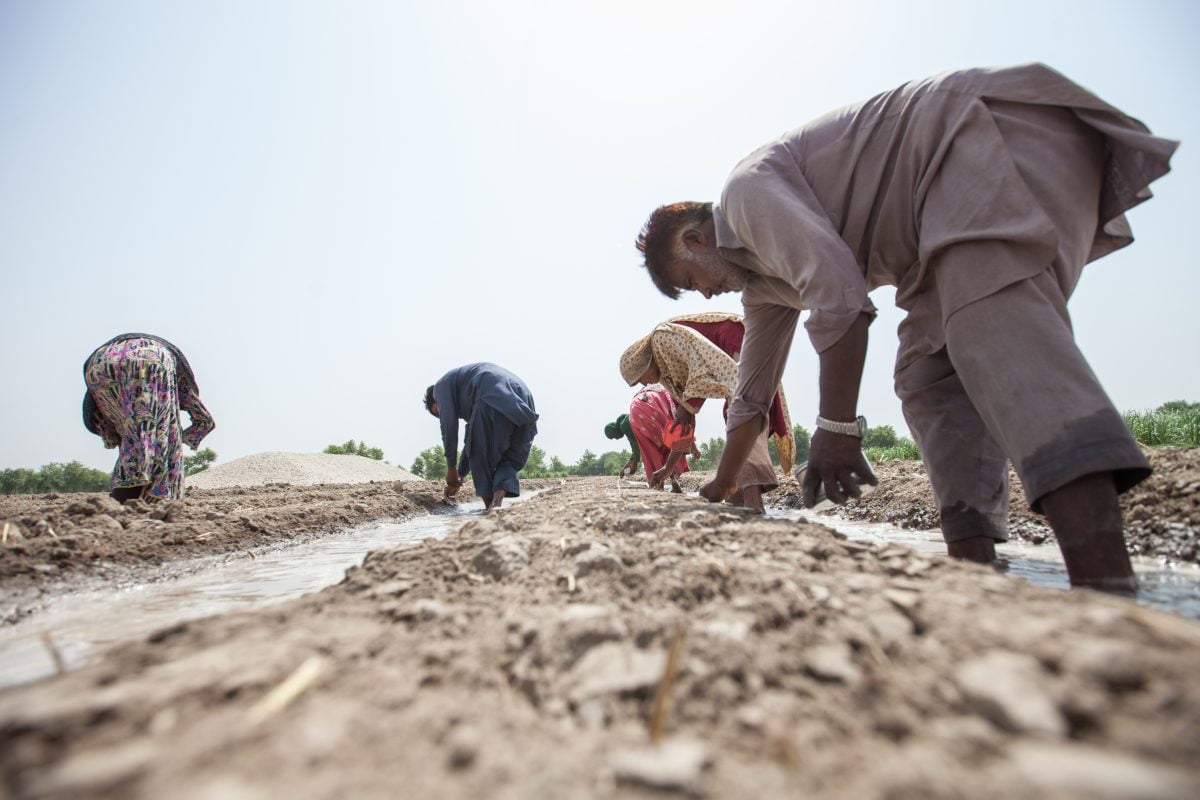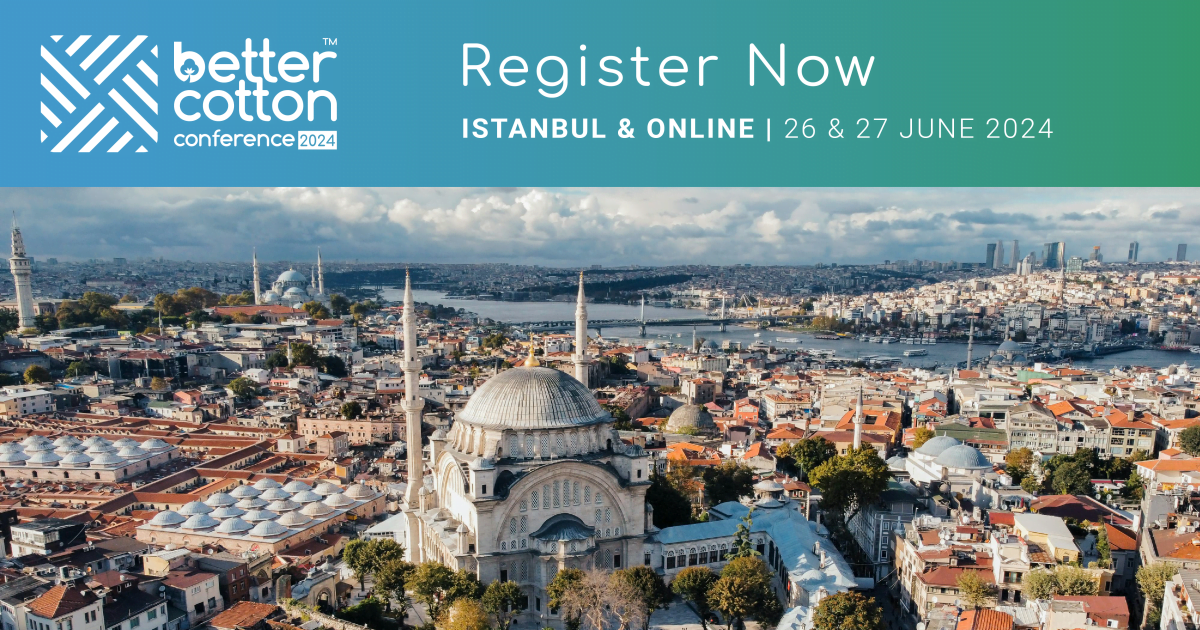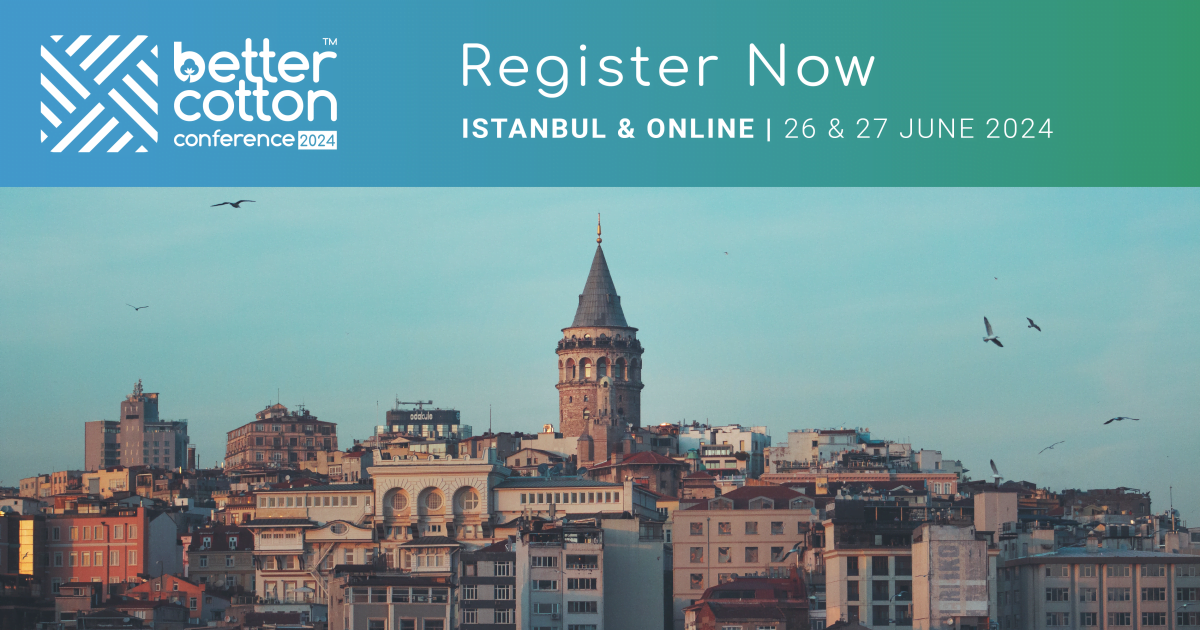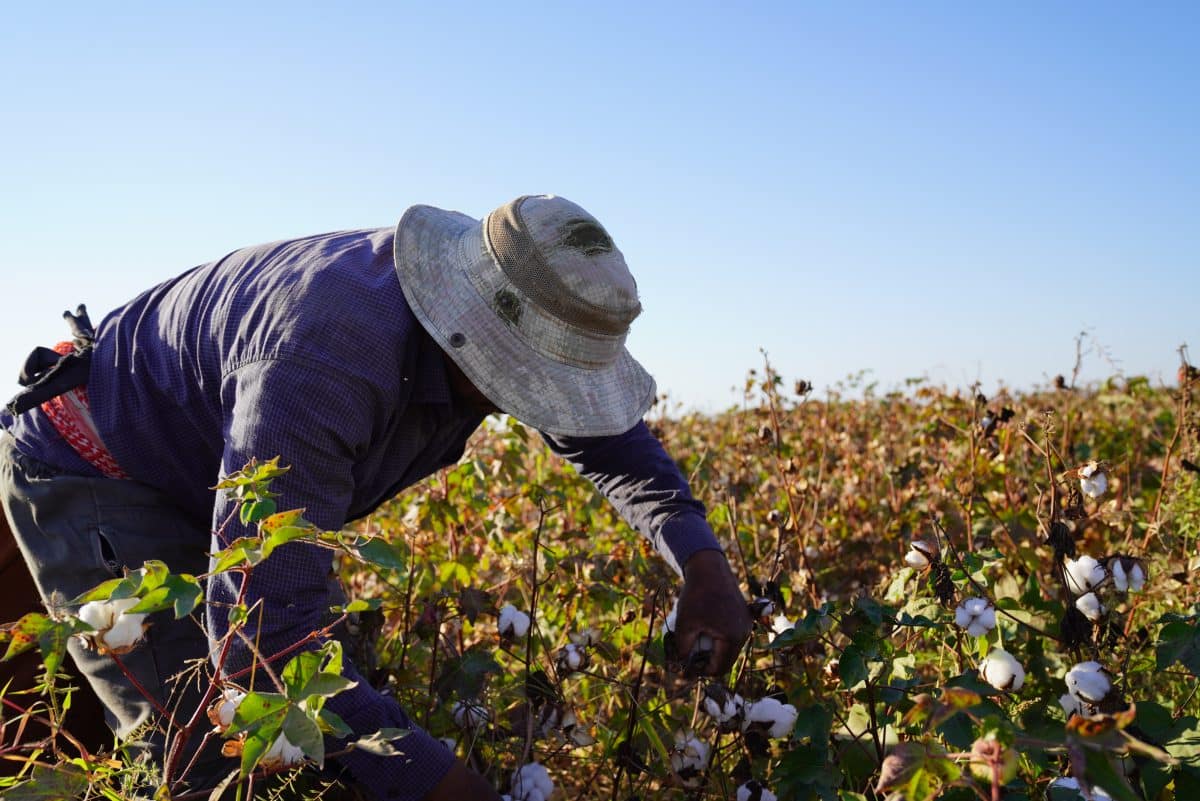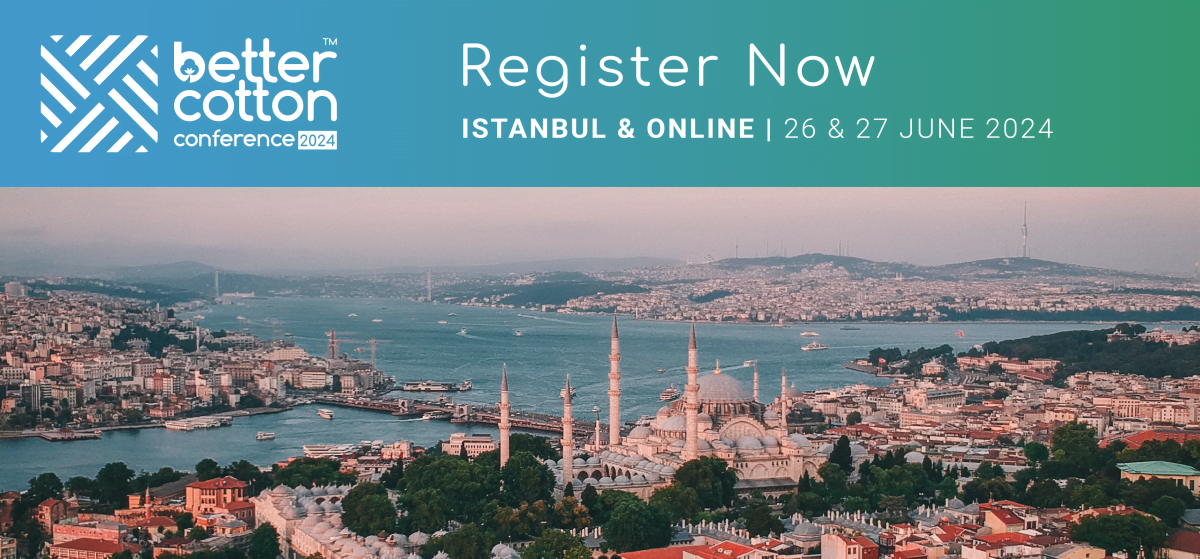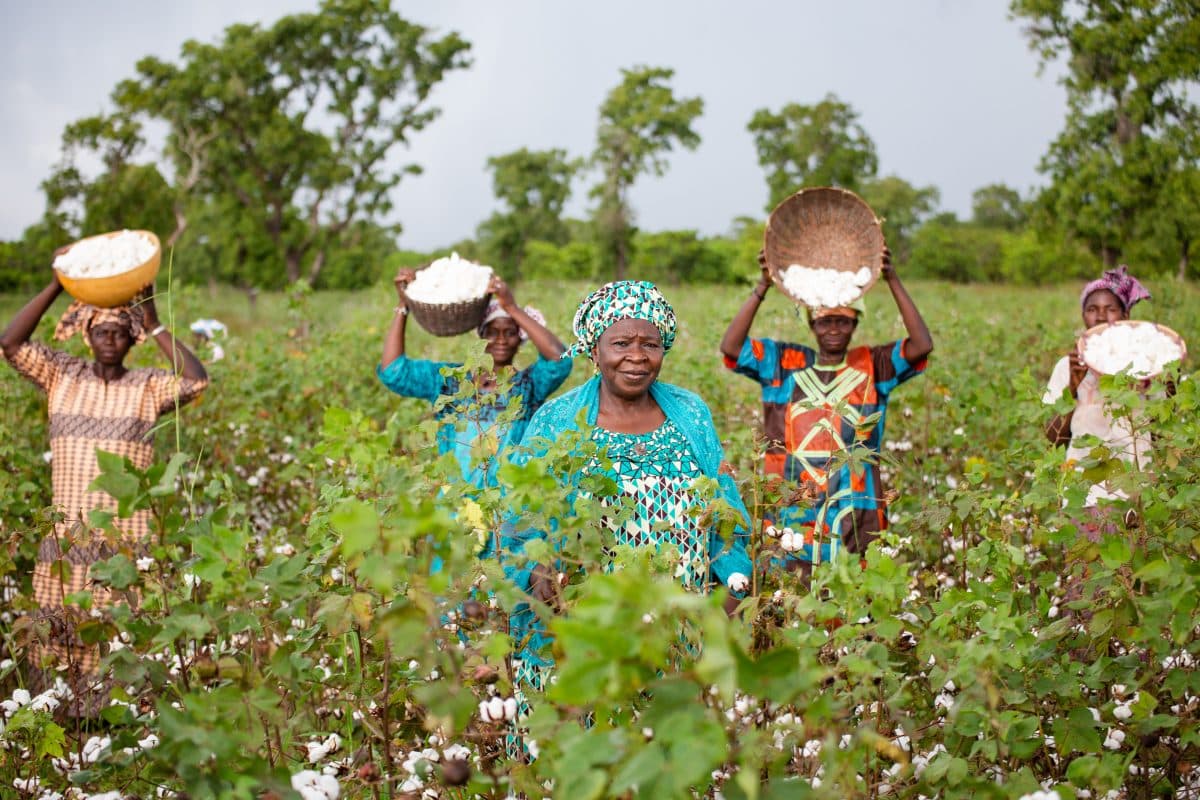Improving Access to Healthcare for Rural Communities: Q&A With Louisa Marie Truß from Elucid
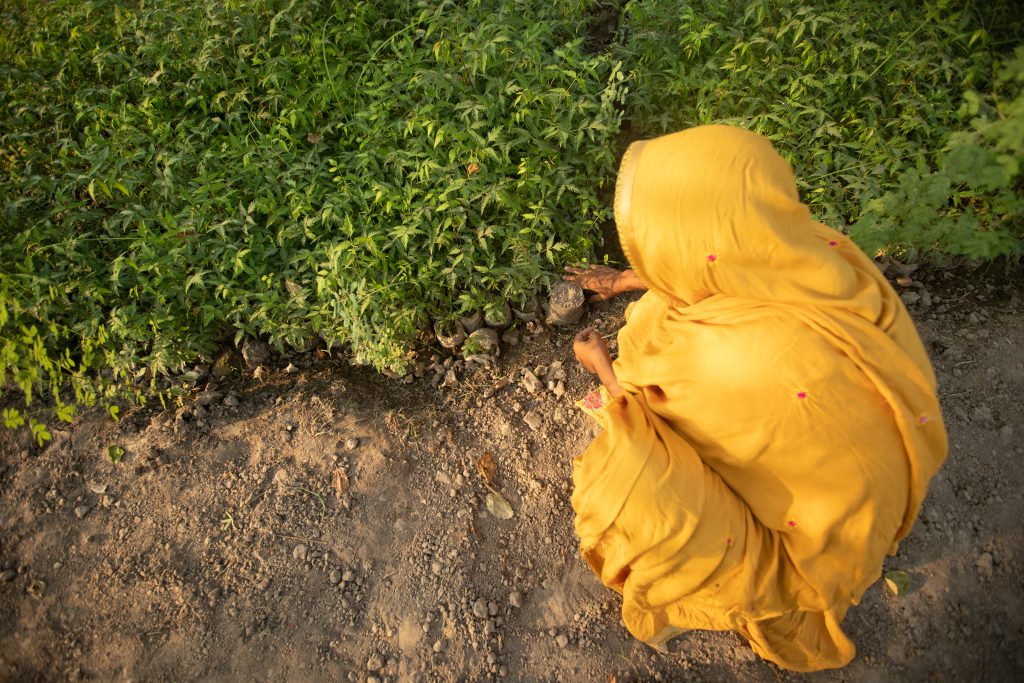

Driving Improvements in Health and Livelihoods for Smallholders


The annual Better Cotton Conference brings together a diverse group of changemakers across the cotton value chain to build a sustainable future for cotton farming communities.
This year’s conference is all about accelerating impact. The opening segment of the Conference, ‘Putting People First’, will explore how centring farmers and farm workers is a win-win-win for farming communities, the environment, and the cotton sector at large. We will challenge cotton stakeholders on what it means to ensure a living income and decent work.
Our experts are action-oriented and will share ideas for social change that support people and strengthen livelihoods. One such expert is Louisa Marie Truß, Head of Partnerships at Elucid, who is joining us as a panellist in our session on Decent Work Gaps and Shared Responsibilities, taking place on the morning of 26 June.
Elucid offers a digital solution that enables small-scale producers to access affordable healthcare, directly subsidised by sourcing companies and buyers. The organisation leverages existing health infrastructure and reduces both financial and geographical barriers to health for rural farming communities.
Elucid’s learnings from other sectors like cocoa and tropical fruits resonate with many similar challenges faced in cotton production. Their model suggests a high potential for addressing some of the root causes of these challenges, driving positive impact among farming communities. Ahead of the conference, we spoke to Louisa about Elucid’s work, and the importance of improving healthcare access in solving decent work challenges.
What challenges is Elucid working to address?
Elucid is dedicated to addressing the pressing health challenges faced by rural farming communities. Despite national insurance systems, high out-of-pocket healthcare costs push over 100 million people into extreme poverty annually and deter individuals from accessing essential medical services.1 Rural areas face significant barriers such as long travel times to healthcare facilities, lack of financial resources, and service gaps in the national health system.
These factors put disadvantaged groups like children and women at risk, endangering family livelihoods, and reducing production capacity and overall resilience. Poor health leads to increased absenteeism and decreased productivity, disrupting crop production and compromising the quality of produce. To cope with high healthcare expenses, families often resort to negative mechanisms such as child labour and unsustainable farming practices, contributing to deforestation and environmental degradation.
Furthermore, the limited availability of data on health and social risks challenges companies working with these communities to manage social risks, jeopardising the long-term sustainability of agricultural production in the region. Elucid focuses on improving healthcare access for small-scale producers and providing companies with the tools to collect high-quality data to prove sustainability claims and manage social risks.
How does improving healthcare access help farming communities?
Health is a human right.
Access to healthcare is a catalyst for increasing farmer health and resilience. Improved healthcare access enhances health outcomes and economic resilience by addressing barriers that boost agricultural productivity, reduce child labour, and support environmental conservation.
Healthcare costs constitute a significant portion of non-food expenses for farming families, accounting for approximately one-third of monthly household spending. A single health crisis can push a household into poverty. Thus, preventing sudden, often impoverishing health expenditure at the household level has a positive impact on the available household income and investment in agricultural inputs and hired labour.2 This can be explained through the reduction of sick days and increased productivity.3 Research also shows increased investment in education, higher school attendance, reduction in child labour4, and lower malnutrition rates5.
What work is Elucid doing to expand access to healthcare?
Elucid provides quality healthcare for smallholder producers in Sub-Saharan Africa and Latin America. Our health programmes are designed to complement and support national policies and services, tailored to fit local contexts. Through our digital platform, producers can access subsidised care at partnering providers, addressing high healthcare costs and covering service gaps in national health systems. Healthcare providers are reimbursed for the treatments they provide.
Healthcare data is automatically analysed and anonymised through the claims filed and shared with national governments to improve service quality. Socio-economic data on livelihoods is collected via surveys. The programme’s impact can be tracked and shared through our data portal, enabling credible impact claims.
The Decent Work Gaps and Shared Responsibilities session at the Better Cotton Conference 2024 will showcase Elucid’s model, as well as other innovative partnerships and approaches to fostering decent work in cotton production, through multi-stakeholder action.
If you want to learn more about actionable collaboration opportunities to promote sustainable livelihoods, gender equality and decent work, head to this link and register for the Better Cotton Conference, which is being hosted both online and in person.
- Eze, Paul et al. “Catastrophic health expenditure in sub-Saharan Africa: systematic review and meta-analysis.” Bulletin of the World
Health Organization vol. 100,5 (2022): 337−351J. doi:10.2471/BLT.21.287673 - Adam et al. “Progress on catastrophic health spending in 133 countries: a retrospective observational study.” The Lancet. Global
health vol. 6,2 (2018): e169−e179. doi:10.1016/S2214−109X(17)30429−1 - Osei-Akoto, Isaac et al. “The effect of health shocks on agricultural productivity: Evidence from Ghana.” International Journal of Agricultural Policy and Research 1 (2013): 67−79.
- Yao, Komlagan Mawuli Apélété et al. “Vulnerability of farming communities to malaria in the Bole district, Ghana.” Parasite epidemiology
and control vol. 3,4 e00073. 2 Aug. 2018, doi:10.1016/j.parepi.2018.e00073 - Garcia-Mandicó, Sílvia et al. “The Social Value of Health Insurance: Results from Ghana.” Journal of Public Economics, vol. 194, 2021, article 104314. ISSN 0047−2727, doi:10.1016/j.jpubeco.2020.104314.
- Kofinti, Raymond Elikplim et al. “Reducing Children’s Malnutrition by Increasing Mothers’ Health Insurance Coverage: A Focus on Stunting and Underweight across 32 Sub-Saharan African Countries.” Economic Modelling, vol. 117, 2022, article 106049. ISSN 0264−9993, doi:10.1016/j.econmod.2022.106049.
- Nuñez, Pablo A et al. “Impact of Universal Health Coverage on Child Growth and Nutrition in Argentina.” American journal of public health vol. 106,4 (2016): 720−6. doi:10.2105/AJPH.2016.303056
Read more
Earthsight: Better Cotton Action Plan Update
In April 2024, Better Cotton was the focus of a report, published by the environmental non-profit, Earthsight, which highlighted issues in the cotton industry of Brazil’s Matopiba region.
Better Cotton commissioned an independent consultant to investigate potential non-compliances on selected farms. We subsequently published our statement and summary of findings, which did not detect any breach of the Better Cotton Standard on the licensed farms in question.
Two months on, Better Cotton has been notified that Earthsight intends to release a “second output”. This specific content has not been shared with Better Cotton. Earthsight contacted us on 6 June 2024 giving us the opportunity to comment on and clarify various points which we will detail in this document.
To reiterate, we welcome scrutiny from civil society organisations. Reports like Earthsight’s help identify instances where improvements can be made. We once again extend an invite to Earthsight to engage with us to learn more about our standard system and the approach we take at field level.
Our mission is to help cotton communities survive and thrive while protecting and restoring the environment, thereby delivering progressive, measurable improvements at field level. Our model focuses on impact, scale and industry uptake to enable all cotton farmers to transition to more sustainable production.
We recognise that challenges exist in many of the countries in which we operate. It is only with action and perseverance in the most challenging circumstances for cotton farming that transformative change at scale can be made, and we are proud of the progress we have helped deliver globally with our dedicated network of partners and members.
In the spirit of transparency, the full document below contains further details on our action plan, clarifications and follow-up explanations to our previously issued statement, as well as information about elements of the Better Cotton Standard System.
Better Cotton and Pesticide Exposure: Research Explores Farmer Welfare in Pakistan
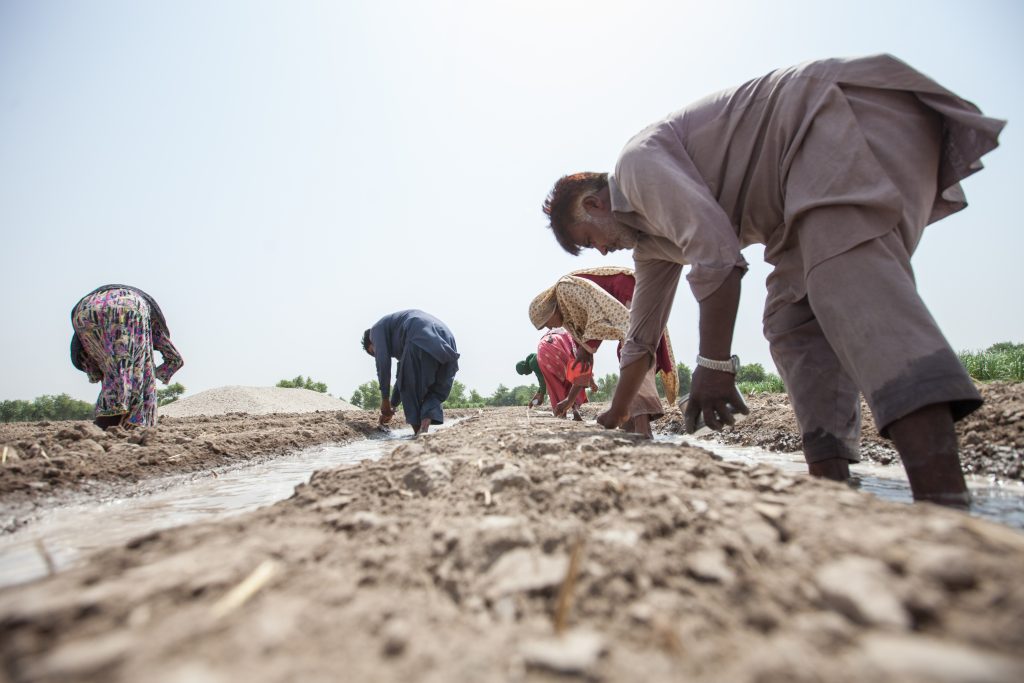



Dr Muhammad Asim Yasin is an agricultural and environmental economist who directly supported Better Cotton Pakistan’s mission through work at the Lok Sanjh Foundation – an Implementing Partner of ours – for more than a decade before turning to academia.
He now serves as an Associate Professor of Economics at COMSATS University Islamabad, Vehari Campus where his experience at the farm level remains a constant source of inspiration.
In 2022, Dr Asim Yasin published a research paper that specifically looked at the impact of Better Cotton’s approach to addressing human exposure to pesticides and the related healthcare costs. The study was a direct comparison between 225 Better Cotton licensed farms and 225 conventional cotton-growing farms. We spoke with Dr Asim Yasin to learn more about his interest, methodology and results.
Tell us about your vocation and the topics you’re passionate about.
I am always interested in topics, programmes and initiatives that contribute to sustainability across agriculture and the environment. Agriculture and the environment are both complex and inextricably linked as the former has an effect on the environment, while climatic changes are impacting the agricultural industry.
What sparked your interest in Better Cotton and the focus of this particular paper – pesticides and their impact on human health?
I became familiar with Better Cotton back in 2014 while working for Lok Sanjh Foundation – an Implementing Partner of Better Cotton. We trained farmers to grow cotton in line with the Better Cotton Standard System. During field visits, I saw farmers follow Better Cotton’s Principles & Criteria, which sparked my interest in initiating research on different aspects of Better Cotton production.
Cotton is considered the dirtiest crop in the world as far as pesticide consumption is concerned. In Pakistan, farmers usually hire pesticide applicators to apply pesticides in the cotton fields, bringing them in direct contact with pesticides, thus causing different types of hazards. Better Cotton trains pesticide applicators and farmers to use pesticides safely. So, the focus of this particular study was to compare pesticide exposure and healthcare costs among pesticide applicators working on both Better Cotton and conventional cotton farms.
Can you summarise your approach to this study and the time over which you conducted it?
Intensive pesticide use can severely affect both the social and economic benefits of cotton production, as the overuse of inputs can impact human health as well as the cost of formulations. According to Better Cotton’s Principles & Criteria, pesticide application is the last option to manage pests. So, the main purpose of my research was to assess the importance of Better Cotton’s approach as a means to lessen the health effects of pesticide exposure. The study was carried out during the 2020/21 cotton season across three districts of Punjab – Toba Tek Singh, Bahawalnagar and Layyah. Although pesticide residues affect all farmers and farm workers, this study exclusively focused on pesticide applicators directly exposed to pesticides. The respondents were selected from a list provided by the Lok Sanjh Foundation. It took almost a year to complete the study including initial meetings, survey, data collection, data mining, analysis and write up.
What were the key areas of distinction between Better Cotton licensed farmers and conventional cotton-producing farmers in terms of the results you obtained?
Generally, both groups used almost the same pesticides that were available in the local market. The results showed that 47% of the pesticide applicators working on Better Cotton licensed farms were not affected compared to 22% of those on conventional cotton-producing farms. This was mainly due to the adoption of safety equipment by applicators on Better Cotton-producing farms. Regarding the uptake among respondents, on average, 88% wore boots on Better Cotton licensed farms compared to 63% on farms producing conventional cotton. On Better Cotton licensed farms, 52% used handkerchiefs (compared to 25%), 57% wore glasses (compared to 22%), 44% wore gloves (compared to 25%), and 78% wore masks (compared to 47%). Results showed that conventional cotton pesticide applicators experienced a greater, negative impact on their health when compared to pesticide applicators on Better Cotton licensed farms.
What’s more, on average, conventional cotton pesticide applicators faced a higher healthcare cost over the period we assessed compared to applicators on Better Cotton licensed farms, due to negligence in the use of precautionary measures.
What are the key challenges and barriers facing Pakistani cotton farming communities in relation to the adoption of more sustainable pesticide solutions and use of appropriate practices and equipment?
A lack of education along with limited access to the government’s agricultural support services, and to sustainable agriculture programmes like Better Cotton are the key factors resulting in lower adoption of best agricultural practices. In this study, alignment with the Better Cotton Standard System and education on safe and effective pesticide application were significant factors that reduced the financial toll on pesticide applicators. The role of extension services is important to educate farmers and farm workers on pesticide use. More investment on education of rural communities could help pesticide applicators better understand the associated risks and enable them to adopt proper precautionary measures against exposure.
How confident are you that systemic change will be achieved on this topic in order to protect cotton farming communities and, in your opinion, what levers must be used to enable this?
Change is not a one-day process, it takes time. The results of different research studies conducted on Better Cotton are quite encouraging in showing that systemic change will be achieved in the near future. We need to expand programmes like Better Cotton to an even bigger scale to involve the maximum number of farmers and conduct research across different sustainability metrics to highlight the scope for impact.
In your opinion, where should future research efforts on cotton in Pakistan be directed?
Following are key areas for research:
- In many areas of central and southern Punjab, which were considered the core areas of cotton production, cotton is replaced by other crops like maize and sugarcane on large tracts of land. Research should be conducted to find out the reasons why, including the climatic, agronomic and economic aspects.
- The scope for more sustainable agricultural practices to improve the cotton value chain.
- The benefits of adopting sustainable practices for cotton picking, storing and transportation and their implications for farmers’ profitability.
- The economic and social impacts of harvest and post-harvest losses.
- The ecological, economic and social challenges associated with transitioning to the production of more sustainable cotton and how they can be overcome.
- The need to assess the current geographical distribution and suitability of cotton production in terms of both quality and quantity base in other non-traditional areas.
Better Cotton Conference: Our Four Key Themes for 2024
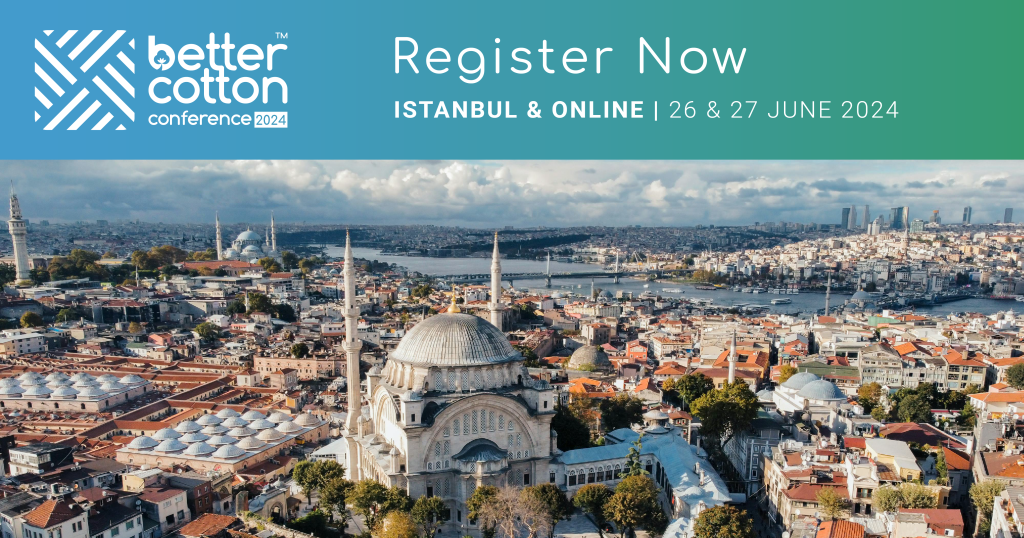

The countdown is on. On June 26-27, the Better Cotton community will gather in Istanbul and online for the Better Cotton Conference 2024. This is a unique opportunity to shape a more sustainable future for the cotton sector by connecting with a diverse group of changemakers along the cotton value chain — from industry leaders to field-level experts.
This year’s conference is all about ‘Accelerating Impact’.
Our four themes are:
- Putting People First
- Driving Change at Field level
- Understanding Policy and Industry Trends
- Reporting on Data and Traceability
Building on the lively discussions and talks from last year’s conference, these themes represent key areas that are both a challenge and an opportunity for the cotton sector.
Through a mix of plenary sessions, interactive workshops and breakouts, attendees will have a chance to thoroughly explore these themes and collaborate to spark new ideas for change. And of course, there will be plenty of opportunities to network with Better Cotton Members and partners.
Let’s take a closer look at this year’s topics and the keynote speakers who will lead these discussions.
1. Putting People First
We will open our conference by exploring how centring farmers and farm workers is a win-win-win for people, the environment, and the cotton sector at large.
In this theme, we’ll be challenging cotton stakeholders on what it means to ensure a living income and decent work. Our experts are action-oriented and will share ideas for social change that empower people and strengthen livelihoods. There will also be a spotlight on decent work progress in our host country, Türkiye.
Kicking this off will be our keynote speaker Aarti Kapoor, Founder and Executive Director of Embode, an independent human rights agency working across multiple sectors and all levels of supply chains.
2. Driving Change at Field Level
In our second theme, we will discuss how to deliver impact quickly and at scale to support cotton farming communities in the fight against climate change. We will also explore topics at the heart of this mission — from soil health and regenerative agriculture to women’s empowerment and carbon markets.
As the president of the Apparel Impact Institute — a nonprofit dedicated to identifying, funding, scaling and measuring the apparel and footwear industry’s environmental impact solutions — Lewis Perkins, our keynote speaker for this theme, knows a thing or two about translating ideas into action, and will share his insights with our audience.
3. Understanding Policy and Industry Trends
As regulations and legislation rapidly evolve, staying up to date on policies and industry trends is crucial. Our third theme will not only give attendees an overview of the major sector trends on the horizon, but also how they will impact the cotton supply chain, and how Better Cotton Members can take a more active role in policymaking.
Guiding us through this will be keynote speaker Dr. Vidhura Ralapanawe, Executive Vice President of Innovation and Sustainability at the Epic Group, a state-of-the-art manufacturing company with facilities in Bangladesh, Jordan and Ethiopia.
4. Reporting on Data and Traceability
Data and traceability are central to sustainability progress, but as demand for data increases, how can we be sure we are measuring the right things? Through our final theme, we will dive into this question. With sessions on Life Cycle Assessments, data collection, and traceability strategies, we will offer important perspectives to ensure these approaches support the cotton sector’s collective goals.
Here to steer this discussion in the right direction is Tülin Akın, Co-Founder of Tabit, a social enterprise that develops solutions to agricultural problems with technologies like farmer decision support software, artificial intelligence, sensors and more.
Join Us to Accelerate Impact
We’re excited to bring our global community together to dive deeper into these topics. Join over 250 people in person and online, all working to find innovative solutions to the cotton sector’s most urgent issues.
Visit our conference website at bettercottonconference.org to learn more and get tickets.
Read moreWhy We Are Bringing the Better Cotton Conference to Istanbul
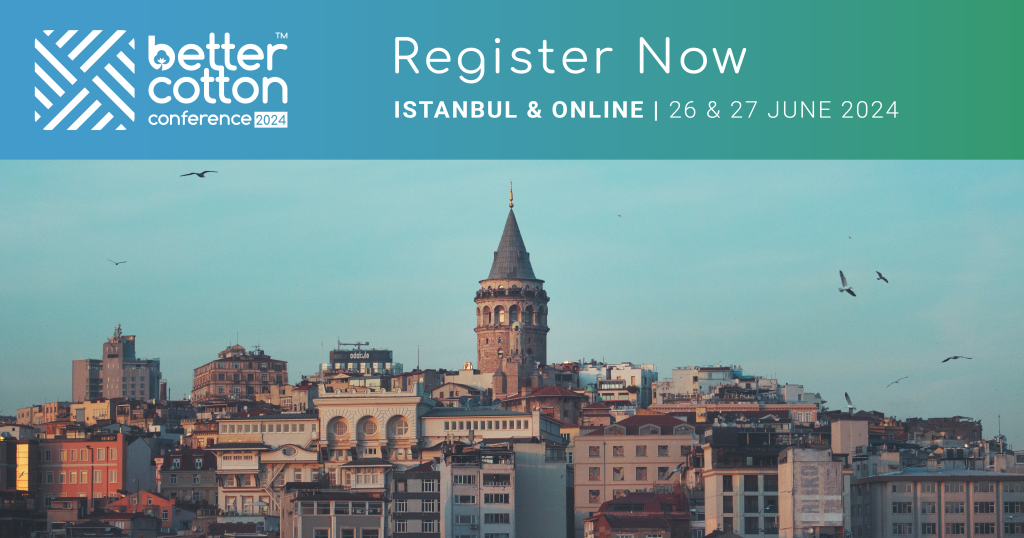

The Better Cotton Conference is an annual opportunity to convene our global community of cotton stakeholders for two days of working together to address the challenges and opportunities in the future of sustainable cotton.
We’re especially excited this year to host the Better Cotton Conference 2024 in Türkiye – the seventh-largest cotton producer in the world, and home to a large domestic textile industry.
The conference will take place 26-27 June in Istanbul, at the Hilton Istanbul Bomonti Hotel & Conference Center. Istanbul is home to 19% of Türkiye’s population, the largest city in Türkiye and in Europe. It is uniquely positioned on the Bosphorus Strait, spanning both Europe and Asia, and conference attendees will enjoy a networking river cruise on the Bosphorus after our first day of the conference.
Türkiye has been cultivating cotton since the 6th century, and is known worldwide for its impressive textile industry. With our own Better Cotton history going back more than 12 years, it’s the perfect place to get inspired for a better future for our sector.
The first Turkish Better Cotton harvest took place in 2013. By the 2021-22 season, production had reached over 67,000 tonnes, mainly focused in the Aegean Region, Cukurova and south-eastern Anatolia. We work with our Strategic Partner, İyi Pamuk Uygulamaları Derneği (IPUD) – the Good Cotton Practices Association, to build Better Cotton supply and demand in Türkiye and transform Turkish cotton into a sustainable mainstream commodity.
Our programme in Türkiye is hugely important to Better Cotton, and our conference provides a fantastic opportunity to highlight this. In 2017, seven Better Cotton Member brands supported IPUD’s project ‘Toward Decent Working Conditions in Cotton Farms in Şanlıurfa’. IPUD and partners have continued to scale up that work, mobilising local resources and raising awareness. At this year’s conference in Istanbul, we’ll hear from IPUD Project Coordinator Nurcan Talay about the most recent project in Turkiye, ‘Women and Child-Friendly Mobile Area Project.’
With our overall focus of ‘Accelerating Impact’ at the Better Cotton Conference 2024, sessions will be showing stakeholders tangible ways of investing in the sustainability of the cotton supply chain and the livelihoods of cotton farming communities.
We’ll showcase another Turkish perspective as Tülin Akın gives the keynote for our Reporting on Data & Traceability theme. Tülin is the founder of social enterprise Tabit, Türkiye’s first agricultural social communication and information network and its first agricultural e-commerce system. Tabit modelled Türkiye’s first farmer credit card, enabling farmers to find financial resources without incurring losses.
Our other keynote speakers include Lewis Perkins from the Apparel Impact Institute, Aarti Kapoor from human rights agency Embode, and Dr Vidhura Ralapanawe from Epic Group. The themes we’re exploring are Putting People First, Driving Change at Field Level, Understanding Policy & Industry Trends and Reporting on Data & Traceability.
Join us in the beautiful city of Istanbul, or catch our plenary sessions via an online ticket. Find more details and register here.
Read moreAt Work in a Changing Climate
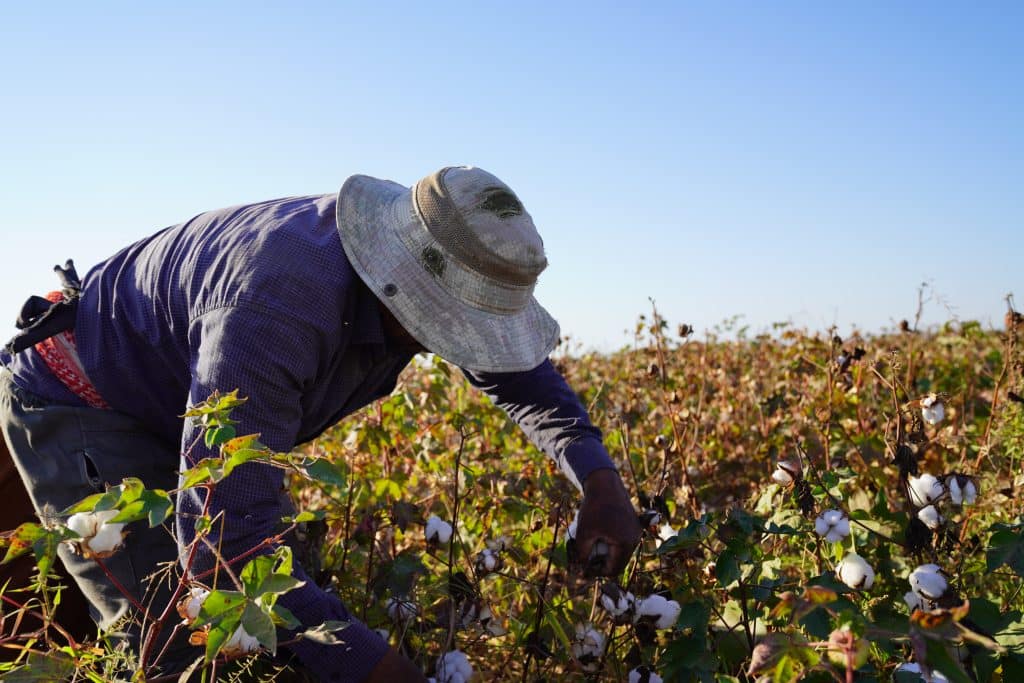



By Alessandra Barbarewicz, Senior Decent Work Officer at Better Cotton
In April 2024, the International Labour Organization (ILO) published a report on safety and health at work in a changing climate, highlighting the impact that climate change is already having on the health and safety of workers in all regions of the world. Recent data indicates that over 2.4 billion individuals, comprising a significant portion of the global workforce of 3.4 billion, face the threat of excessive heat exposure in their workplaces.
Agriculture stands out among the sectors bearing the brunt of climate change, particularly in tropical and subtropical regions. These regions experience extreme heat and have a substantial workforce engaged in agricultural activities. Often operating in informal settings, workers endure physically demanding outdoor tasks amidst challenging conditions.
In line with the ILO’s fundamental principles and rights at work, Better Cotton acknowledges the paramount importance of addressing health and safety concerns to uphold fair working conditions for those engaged in cotton farming.
In our recently updated farm-level standard, the Principles and Criteria (P&C) version 3.0, we have strengthened our requirements regarding occupational safety and health for all farmers and workers (Criterion 5.8). The enhanced health and safety indicators stipulate regular rest breaks with access to clean drinking water, alongside provisions for shade to mitigate the dangers of heat stress, harmful UV light exposure and dehydration.
Temperatures rising due to climate change can also increase the risk of fatigue among workers and potentially lead to a decrease in attentiveness during hazardous tasks. The P&C therefore mandates Producers to proactively identify and mitigate hazards, while ensuring comprehensive health and safety training for all individuals involved in farm-level operations, with particular emphasis on those most susceptible to risks.
As highlighted by the ILO report, the repercussions of climate change for farm workers extend beyond mere exposure to excessive heat, creating a “cocktail of hazards” that pose significant health risks. With rising temperatures, pesticide efficacy is expected to decrease, as pest populations rise and their geographical distribution shifts. These changes may result in the use of more toxic pesticides and more frequent spraying, which increases the potential for worker exposure. This has both short-term and chronic impacts on health, particularly when compounded by excessive heat exposure.
In the latest version of our standard, considerable emphasis is placed on reducing reliance on chemical pesticides. This involves resorting to HHPs only as a last option within Integrated Pest Management (IPM) strategies, ensuring safe handling and disposal of pesticide containers, and mandating the use of appropriate Personal Protective Equipment (PPE) at a minimum.
The Integrated Pest Management (IPM) approach is the cornerstone of our Crop Protection Principle, which encourages farmers to foster a robust crop while minimising disturbance to agroecosystems. This approach gives preference to non-chemical methods, with conventional pesticides employed as a final recourse, thereby reducing exposure and health risks for workers. For further insights into IPM, you can explore our dedicated blog here.
Lastly, the standard recognises the interplay between climate change and social disparities across several Principles, notably Decent Work and Crop Protection, by introducing Climate Change and Gender Equality as cross-cutting priorities throughout the P&C. For example, amidst a shifting climate landscape, women may be more at risk to heat stress due to additional clothing requirements on account of cultural norms, and more vulnerable to pesticide exposure due to specific tasks they engage in or when pregnant or nursing. Producers must therefore demonstrate tailored attention to the requirements of women engaged in field activities and take steps accordingly.
Key to Better Cotton’s mission is a focus on both continuous improvement and multistakeholder collaboration. This is why mere compliance is insufficient; we must work with producers to support them as they strive for ongoing enhancement of their practices. We also acknowledge that the resilience of farmers to climate change cannot be achieved in isolation; it demands collaboration among various stakeholders, including farming communities, supply chain actors, NGOs and governments.
As a multistakeholder initiative, Better Cotton can play an important role in bringing together diverse stakeholders to mitigate adverse effects on human rights and the environment, ensuring a sustainable future for all involved in cotton production. Multi-stakeholder collaboration is particularly important in view of the new EU Corporate Sustainability Due Diligence Directive (CSDDD), which calls for businesses to undertake a comprehensive assessment of the adverse impacts of their operations on the communities within their supply chains.
Read moreBetter Cotton Conference 2024: Meet Your Keynote Speakers!
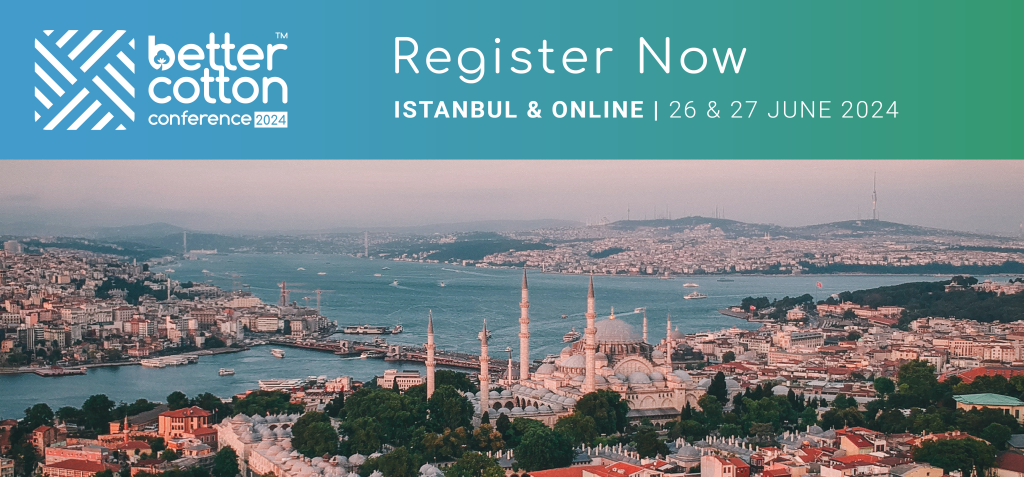

Better Cotton’s annual conference returns 26-27 June 2024! We’ll be in Istanbul, Türkiye, to welcome a multistakeholder, cross-commodity audience in-person and online for two days of action-packed discussion and debate at the Hilton Bomonti Hotel & Conference Center.
Our agenda will span four complex and interlinked themes – Putting People First, Driving Change at Field Level, Understanding Policy & Industry Trends, and Reporting on Data & Traceability.
Kicking things off across each of these will be specialist keynote speakers, who’ll set the scene for the sessions to come and offer insights on why they’re so pertinent to the sector’s development. Without further ado, let’s meet them!
Getting things underway in our ‘Putting People First’ theme will be Aarti Kapoor, the founder and Executive Director of human rights agency Embode. At Embode, Aarti has overseen the growth of a broad portfolio in the highly specialised areas of labour rights, child protection and migration. With a 25-year career spanning government civil service in the UK, local and international NGO work in Asia, and corporate strategy globally, she will lead a thoughtful discussion about decent work and other social concerns in supply chains.
That afternoon, attention will turn to our second theme – ‘Driving Change at Field Level’. For that, we welcome Lewis Perkins, President of the Apparel Impact Institute (Aii), a non-profit committed to identifying, funding, scaling and measuring the apparel and footwear industry’s proven environmental impact solutions. A sustainable systems pioneer, Lewis has over two decades of experience in sustainability, corporate social responsibility and philanthropy. He formerly served as president of the Cradle to Cradle Products Innovation Institute (C2CPII) where he founded and led the Institute’s Fashion Positive initiative.
Starting day two will be our ‘Understanding Policy & Industry Trends’ theme, for which Dr Vidhura Ralapanawe has been appointed as our keynote. Vidhura is the Executive Vice President for Innovation and Sustainability of global apparel manufacturer, Epic Group, where he plays an instrumental role in delivering the company’s sustainability action plan. Over more than 15 years, his experience has spanned work on decarbonisation, the creation of ‘green factories’, resource efficiency and low-impact product design.
To round out the event, Tülin Akın, founder of social enterprise Tabit will serve as keynote for our fourth and final theme – ‘Reporting on Data & Traceability’. A passion project born during her days at Akdeniz University, Tabit is Türkiye’s first agricultural social communication and information network and its first agricultural e-commerce system.
Tülin modelled Türkiye’s first farmer credit card, enabling farmers to find financial resources without incurring losses. By establishing the world’s first Smart Village, which provides applied technology training to farmers, she has enabled more than 1.5 million farmers in Türkiye and approximately 7 million farmers in Africa and the Middle East to come together with information and technology.








We’re now just over seven weeks away from touching down in Istanbul for this year’s conference and we can’t wait to see you there. Tickets are still available to attend either in-person or online. Get yours via our website.
Read moreBetter Cotton, in Collaboration With African Export-Import Bank, Joins WTO and FIFA Efforts To Scale More Sustainable Cotton Production in Africa
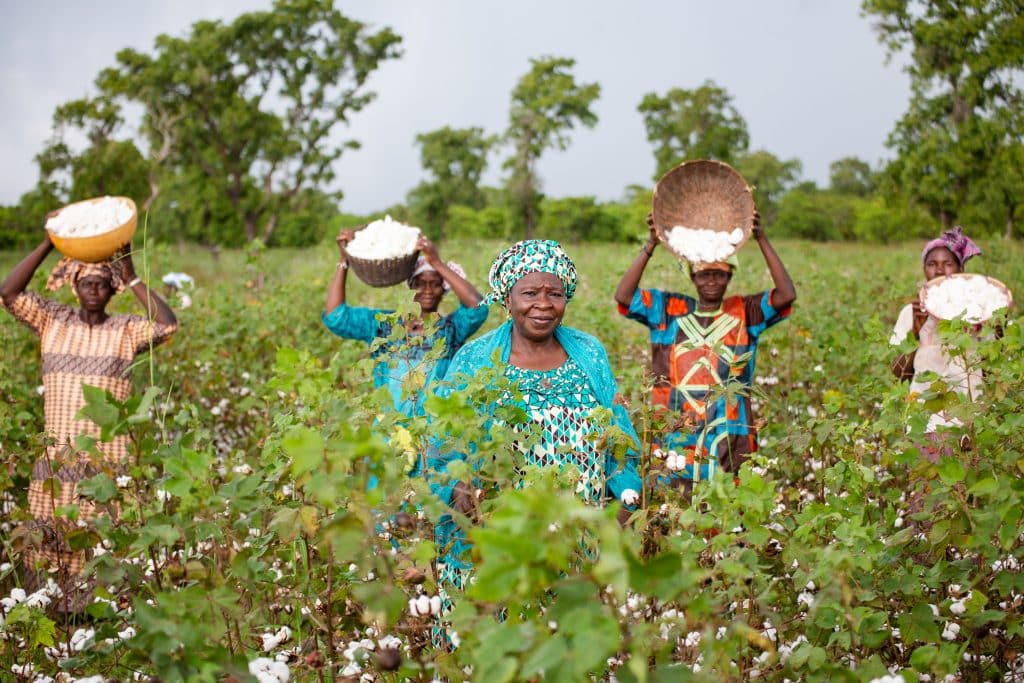

- Better Cotton will conduct sustainability mapping and assessments in Mali and Côte d’Ivoire to better understand smallholder cotton farmer operations and needs.
- The project will complement an existing partnership between WTO and FIFA which focuses on developing raw material production and processing in key countries in West and Central Africa.
- Better Cotton has programmes across Africa in Egypt, Mali, Mozambique and Côte d’Ivoire.
Better Cotton is to conduct sustainability mapping and assessments in West and Central Africa to enhance its understanding of the needs of smallholder farmers in the region and identify context-specific interventions.
Funded by the African Export-Import Bank (Afreximbank), these assessments will inform ways in which targeted support can aid the production of more sustainable and regenerative cotton across Better Cotton’s programmes in Mali and Côte d’Ivoire – which engage a combined 200,000 farmers and farm workers.
This collaboration between Better Cotton and Afreximbank is part of wider efforts on the continent, led by the World Trade Organization (WTO) and football governing body FIFA, which aim to support the development of the cotton-to-textile value chain in West and Central Africa and improve economic returns for the sector.
In 2022, the WTO and FIFA formalised a partnership to enhance the participation of Burkina Faso, Benin, Chad and Mali – known as the Cotton Four (C4) – as well as neighbouring countries like Côte d’Ivoire, within apparel value chains.
In February of this year, the pair officially launched a coalition, ‘Partenariat pour le Coton’ – of which Better Cotton is a member – to accelerate work on this front.
In doing so, they issued a call for investment, emphasising that the current balance of exporting 90% cotton raw material falls short of the region’s economic potential. While raw material exports generate vital revenues, organisations active on the continent believe there is scope to bolster local processing capacities in order to boost incomes.
Better Cotton’s assessments – conducted with support from its Programme Partners in Mali and Côte d’Ivoire – will connect farming communities to the WTO and FIFA’s mission to strengthen supply chains in the region.
Better Cotton remains committed to Africa and continues to build upon its presence on the continent. In November 2023, the organisation launched its programme in Côte d’Ivoire and co-hosted an event in Chad to discuss opportunities to establish a programme in the country.
Africa is a vibrant and exciting region for cotton production and our expansion on the continent is demonstrative of that. At the heart of our mission are cotton farmers, workers and the surrounding communities – these assessments will help optimise our efforts and pave the way for continued sustainable economic development across Mali and Côte d’Ivoire.
Through initiatives like these, we are committed to supporting Africa’s smallholder farmers and the entire cotton value chain, enabling them to extract maximum value from their produce, boost value addition, attain higher levels of sustainability and improve quality, all while prioritising superior products with global market potential.”









































